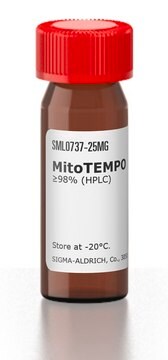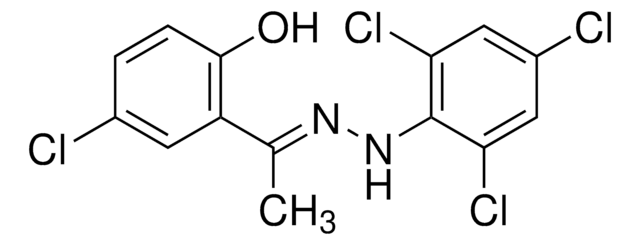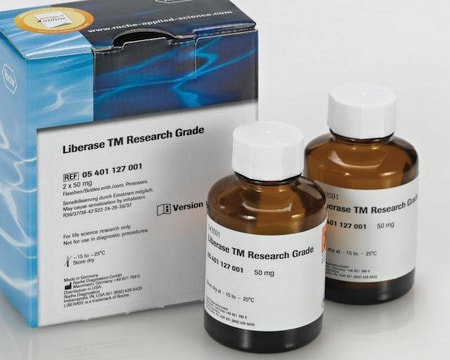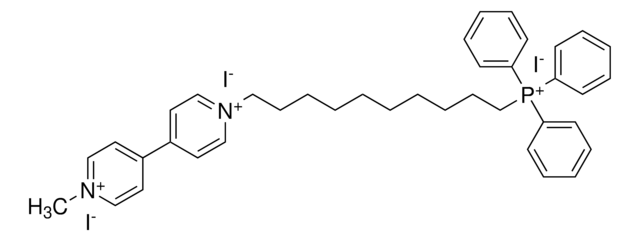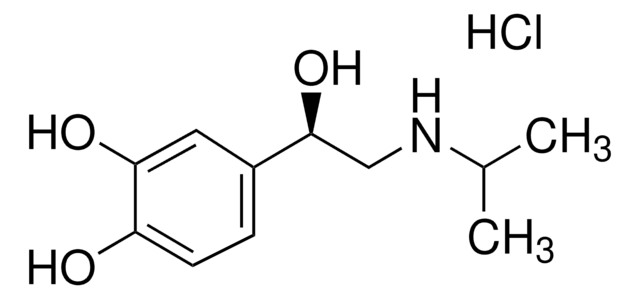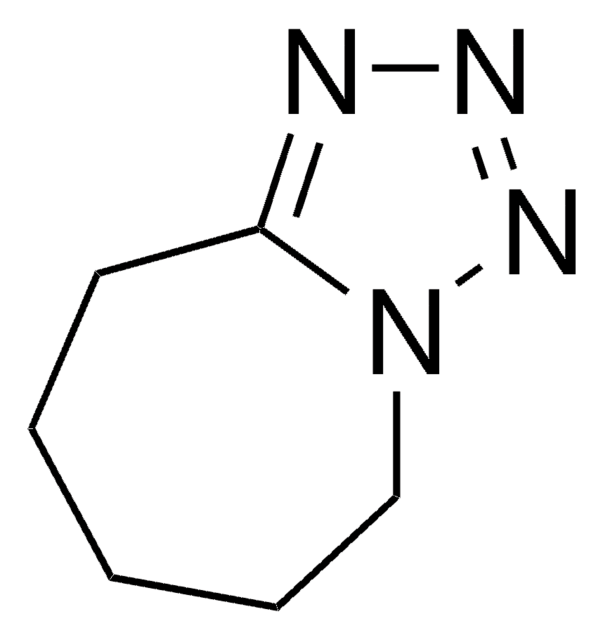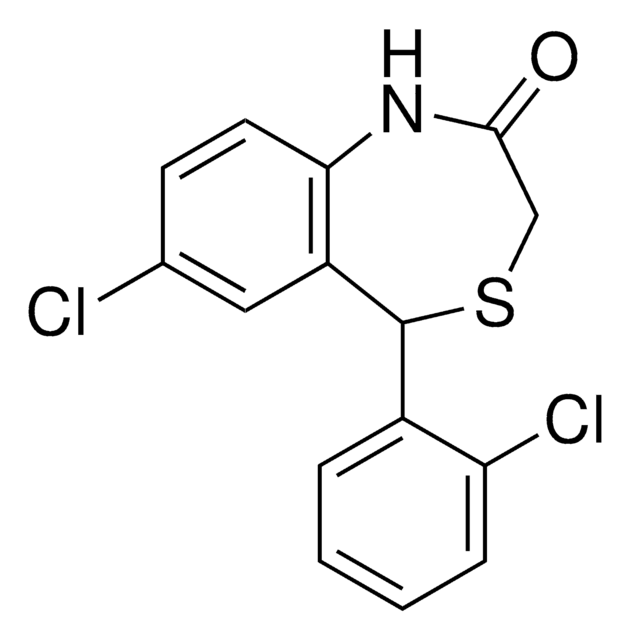M0199
Mdivi-1
≥98% (HPLC), powder, mitochondrial division DRP inhibitor
Synonym(s):
3-(2,4-Dichloro-5-methoxyphenyl)-2,3-dihydro-2-thioxo-4(1H)-quinazolinone, 3-(2,4-Dichloro-5-methoxyphenyl)-2-sulfanyl-4(3H)-quinazolinone
About This Item
Recommended Products
Product Name
Mdivi-1, ≥98% (HPLC), powder
Assay
≥98% (HPLC)
form
powder
color
white to beige
solubility
DMSO: >20 mg/mL
shipped in
wet ice
storage temp.
−20°C
SMILES string
COc1cc(N2C(S)=Nc3ccccc3C2=O)c(Cl)cc1Cl
InChI
1S/C15H10Cl2N2O2S/c1-21-13-7-12(9(16)6-10(13)17)19-14(20)8-4-2-3-5-11(8)18-15(19)22/h2-7H,1H3,(H,18,22)
InChI key
NZJKEVWTYMOYOR-UHFFFAOYSA-N
Related Categories
General description
Application
- in embryonic thoracic aorta A7r5 cells to inhibit cell migration and proliferation
- in mitochondrial network reshaping and reactive oxygen species (ROS) production studies in oligodendrocyte precursor cells (OPCs)
- to induce mitochondrial damage in lung fibroblasts
Biochem/physiol Actions
Features and Benefits
Storage Class Code
11 - Combustible Solids
WGK
WGK 3
Flash Point(F)
Not applicable
Flash Point(C)
Not applicable
Choose from one of the most recent versions:
Already Own This Product?
Find documentation for the products that you have recently purchased in the Document Library.
Customers Also Viewed
Related Content
n proliferating cells, the cell cycle consists of four phases. Gap 1 (G1) is the interval between mitosis and DNA replication that is characterized by cell growth. Replication of DNA occurs during the synthesis (S) phase, which is followed by a second gap phase (G2) during which growth and preparation for cell division occurs. Together, these three stages comprise the interphase phase of the cell cycle. Interphase is followed by the mitotic (M) phase.
Apoptosis, or programmed cell death (PCD), is a selective process for the removal of unnecessary, infected or transformed cells in various biological systems. As it plays a role in the homeostasis of multicellular organisms, apoptosis is tightly regulated through two principal pathways by a number of regulatory and effector molecules.
Our team of scientists has experience in all areas of research including Life Science, Material Science, Chemical Synthesis, Chromatography, Analytical and many others.
Contact Technical Service